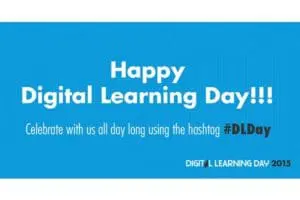If you’re not familiar, Digital Learning Day is a time to learn about and celebrate the innovative strides education leaders are taking to meaningfully enhance students’ learning experiences with digital resources and tools. This year’s Digital Learning Day features everything from live events to lesson plans. One of the biggest highlights of the day’s festivities is its focus on stories of digital learning in action. Whether at the national event, on the Digital Learning Day website, or at their own local events, educators from across the country (and the world) will share their digital learning experiences and highlight best practices and new ideas about using technology in support of student learning.
But does embracing these new technologies and opportunities also mean having to compromise students’ privacy? Not at all. The education field, including educators, advocates, and representatives of the education technology industry, have been working to ensure that digital learning does not conflict with safeguarding students’ privacy.
Earlier this week, DQC and the Consortium for School Networking released the Student Data Principles to help guide the work of everyone who uses student information. These 10 principles, which over 30 education organizations have already signed on to, represent a shared commitment to using students’ information to benefit their learning and to safeguarding students’ privacy. The principles are one of a number of recent initiatives to safeguard student information, such as the Student Privacy Pledge developed by the Future of Privacy Forum and the Software & Information Industry Association. Over 120 education technology organizations have signed on to this industry-led commitment to use data only as authorized by schools and families and to protect students’ data privacy.
In addition to the activities of the education and technology fields, the federal government and states have also been talking steps to ensure students’ privacy is protected when they use online or digital services. While the federal government considers new legislation and opportunities to update existing statute and continues to provide resources, states are introducing dozens of bills focused on protecting students’ digital data.
What all of these privacy initiatives suggest is that while digital learning may be new, the values we want to uphold—using information to open doors for students and protecting privacy—are not. As the Alliance for Excellent Education explains, “Digital Learning Day is not about technology, it’s about learning.” Technology represents a powerful tool for expanding classroom opportunities and personalizing learning, but it will only be used and useful if students, families, and educators can trust that their privacy is protected and learning is the goal.


